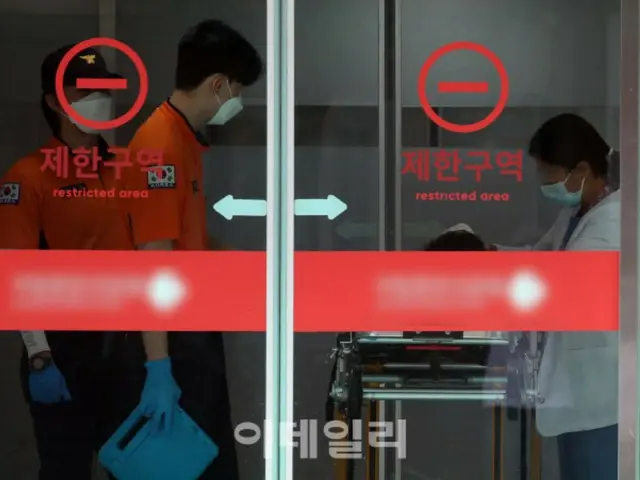According to documents received by Democratic Party lawmaker Choi Hyun-il from the Fire and Disaster Management Agency on the 14th
After the mass exodus of medical trainees, the emergency medical system was not able to function properly, and between March and August, there were 1 case nationwide where it took more than 60 minutes to transport an emergency patient from the scene to a hospital.
The number of cases of delayed transfer reached 3,940, a 22% increase from the same period last year. By region, all metropolitan autonomous regions except Gwangju and South Jeolla Province saw a large number of cases of delayed transfer.
In particular, Daejeon recorded an increase of 2.8 times (164 cases to 467 cases), followed by Seoul (1.8 times, 636 cases to 1,166 cases) and Busan (1.7 times, 251 cases to 400 cases).
The number of cases (10,000 cases) also increased significantly. The distances traveled by ambulances in major cities also increased. Between March and August this year, there were 10,000 cases in which ambulances transported patients between the site of a patient's infection and a hospital over a distance of more than 30 kilometers.
Analysis showed that there was an increase compared to last year in Daejeon (2.6 times, from 170 to 449 cases), Seoul (2.2 times, from 161 to 362 cases), and Daegu (1.75 times in Daegu, from 451 to 788 cases).
"The problem of emergency patients being passed around from one hospital to another has been confirmed through the current situation regarding the distance and time it takes for ambulances to transport patients from the scene of the emergency service to the hospital," Rep. Choi said.
"The government must immediately resolve the situation in which the collapse of the medical system is causing patients to miss the 'golden time'."
2024/09/14 21:31 KST
Copyrights(C) Edaily wowkorea.jp 78

